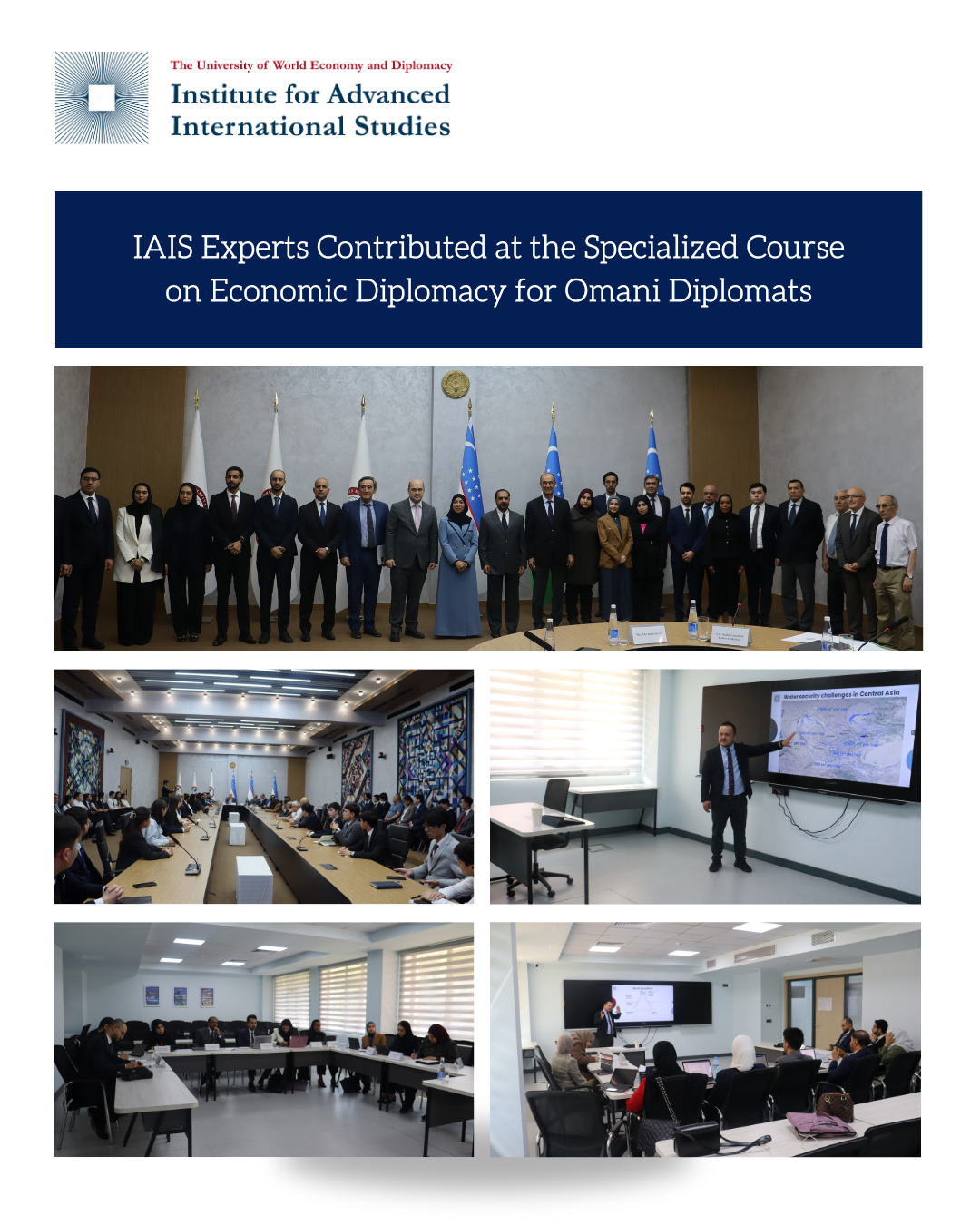
The Diplomatic Academy under the University of World Economy and Diplomacy (UWED) is currently hosting a specialized Course on Economic Diplomacy for a delegation of diplomats from the Ministry of Foreign Affairs of the Sultanate of Oman. This capacity-building initiative underscores the growing strategic ties between Uzbekistan and Oman, while offering a platform for dialogue on contemporary global and regional challenges through the lens of diplomacy and international cooperation. The program is distinguished by the active participation of experts from the Institute for Advanced International Studies (IAIS), who are delivering lectures on key themes shaping Uzbekistan’s foreign policy approach.
Mr. Hamza Boltaev, Senior Research Fellow at the Center for Afghanistan and South Asian Studies, delivered an insightful lecture on Uzbekistan’s experience in combating terrorism and drug trafficking. His presentation highlighted the evolution of Uzbekistan’s national security policy over the past two decades, shaped by both domestic imperatives and regional threats emanating from transnational criminal networks. He discussed the institutional reforms and interagency coordination mechanisms established by the Government of Uzbekistan to counter violent extremism and suppress narcotics trafficking, particularly along the borders with Afghanistan. Mr. Boltaev also emphasised Uzbekistan’s active cooperation with regional and international partners in joint operations and intelligence sharing, as well as the importance of balancing security policies with human rights protections and socio-economic development.
Mr. Shakhboz Akhmedov, Head of the Center for Sustainable Development, presented a comprehensive lecture on the topic of water diplomacy in Uzbekistan. His presentation traced the historical and contemporary dimensions of water-related conflicts across the world, with a particular focus on the transboundary water disputes in Central Asia. Mr. Akhmedov argued that water diplomacy has emerged as an indispensable tool in resolving these tensions and facilitating regional cooperation, especially within the framework of multilateral dialogue platforms and basin agreements. The lecture also addressed the pressing challenges of water security in the region, including the impact of climate change and seasonal variability in river flows, and the urgent need for adaptive governance mechanisms. His remarks drew attention to the linkages between water diplomacy and broader themes of sustainable development, environmental resilience, and interdependence.
Professor Ibragim Mavlanov, Head of the Center for Economic Diplomacy, introduced the participants to the strategic principles and practical tools underlying the country’s economic diplomacy agenda. His lecture covered the evolution of Uzbekistan’s economic foreign policy since the early 2010s, the transition to a market-oriented economy, and the increasing importance of trade and investment diplomacy in shaping external engagements. Prof. Mavlanov analysed the mechanisms through which Uzbekistan promotes its economic interests abroad, including trade missions, investment forums, and bilateral economic commissions. He also discussed the integration of economic diplomacy into the work of diplomatic missions, and the institutional efforts to train diplomats in commercial negotiation, economic analysis, and cross-cultural communication.
This course marks another milestone in the efforts of the Diplomatic Academy and IAIS to internationalize Uzbekistan’s diplomatic education and engage constructively with partners from across the world. The training sessions have provided a valuable opportunity not only for professional exchange, but also for strengthening the bonds between the diplomatic and academic communities of Uzbekistan and the Sultanate of Oman.